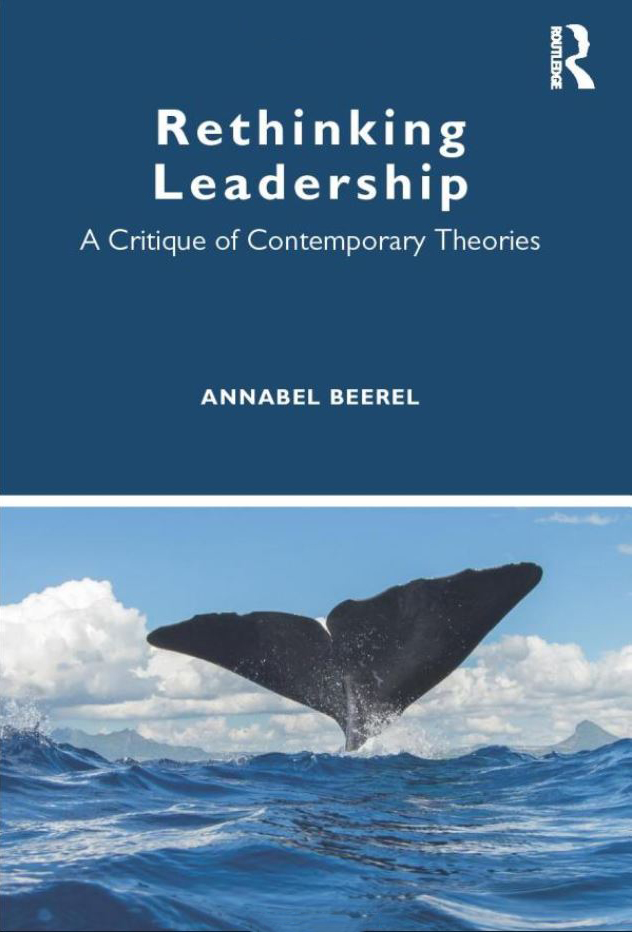LEADERS NEED TO BE CASSANDRAS
Annabel Beerel
November 16th, 2021
Cassandra, the gifted seer, warned the Trojans that there was an armed force inside the wooden horse they had hauled inside their city walls. The Trojans would not believe her, and so they met their fate at the hand of the wily Greeks.
The god Apollo, who had been spurned by Cassandra, punished her by ensuring that no-one would believe her prophesies. That curse persists as we observe modern day Cassandras being frequently either mocked or ignored.
Leadership expert, Margaret Heffernan, in her book, Willful Blindness (2012), explores the forces at work that make us deny the threats that stare us in the face. Through stories ranging from broken marriages, x-rays given to pregnant mothers knowing that radiation damages prenatal children, the lingering presence of asbestos, the 1987 financial collapse due to derivatives which several people predicted would play a major role in the next financial debacle, and did, the Catholic Church scandal, ENRON, and the BP environmental disaster, Heffernan highlights people’s fierce determination not to see what is right before their eyes if it in any way hints of change, of conflict, or creates cognitive dissonance. She points out that we don’t want to know what challenges our values and deeply held beliefs. We filter out, edit, rationalize, ignore, defer, and become quite blind to truths we do not want to, or cannot bear to hear. Our fragile egos serve as virulent gate keepers.
Useful Delusions: The Power & Paradox of the Self-Deceiving Brain by Shankar Vedantam & Bill Mesler 2021, explores the related phenomenon of self-deception. These authors claim that we all seek beliefs that tell us we have a purpose, and that our lives are okay. We eschew the hard truth, as, according to them, our eyes and brains are not in the truth business but in the functionality business (Vedantam & Mesler, 2021, p. xxi). We are gullible, and once deceived, many of us defend ourselves by denying the reality that we were duped.
The situation of both blindness and self-deception is worsened when it comes to the collective. The cultic nature of groups encourages groupthink, the denial of contradictory realities, and the need to feel invincible. Groups readily rationalize away a reality that does not meet their own.
As discussed in my book, Ethical Leadership and Global Capitalism: A Guide to Good Practice (2020), groups not only share common understandings and outlooks; they also share secrets and defense mechanisms. They learn to see things the same way, and how not to see what they do not want to see. For example, if the group wants to deny the reality of unethical behavior, it will. The group also has the potential to “kill” anyone who breaks the unconscious agreement of deception. Collaboration at all levels is the name of the game and the passport to safety. Think of the collusion at Volkswagen, Wells Fargo, and Deutsche Bank, and note the fate of whistleblowers.
Can denying reality, as Vedantum & Mesler imply, serve us? Can we avoid the truth, and live both deceived and happy? Well, that depends on whether one wants to live an engaged, self-accountable, and authentic life or not. The truth about the truth is that in the end, it always prevails. Reality does not wait for anyone’s acceptance or approval. And while we can argue about the nuances of what is real – for example, the extent of the danger of Covid that in the US alone has claimed over 700,000 people’s lives – it would be hard to be both sane and to dispute its existence. The same goes for any new reality: we can ignore it, deny it, dilute it, or fight it, yet the sea tide of change always arrives. And the longer we wait to embrace the truth, the less options available and the higher the cost, if not in inconvenience, then to our very existence.
As I belabor in my books and seminars, the prime task of leadership is to identify new realities when they are new, and to mobilize others to embrace the changes that ensue. Exercising leadership thus requires one to be a Cassandra. Cassandras are critical thinkers who are mindful, observant, curious, energetic, and open – open to the inevitability of change and all its ramifications. Their prophesy is not a fantastic tale, but a perspicacious reading of the tea leaves that result from an observant and inquiring mind. Cassandras are not phased by uncertainty, nor do they let their egos get in the way.
Because we tend to dislike new realities – unless they suit us – Cassandra, as often the unwelcome messenger, needs great courage to hold people’s feet to the fire to acknowledge the new reality and to adapt. Unfortunately, far too few people in leadership positions have the nerve to follow through with the adaptive work if the clamor of discomfort is too loud (read A Failure of Nerve (2007), by Edwin H. Friedman). As a result, we lurch from one reactive response of a changing reality to another. And consequently, we end up tackling the symptoms because we do not have time to investigate the new reality’s systemic nature. Each hasty solution trotted out, becomes our next problem. What will we do with the escalating mental health problems, the growing divide between rich and poor, and the devastating scale of corporate corruption (read Fortune, April/May 2021, pages 92-93)?
Maybe 2022 will herald a new reality; one where there will be more brave Cassandras, and where her curse will be lifted. For the sake of the world, and the mounting new realities on the horizon, let us hope so.



